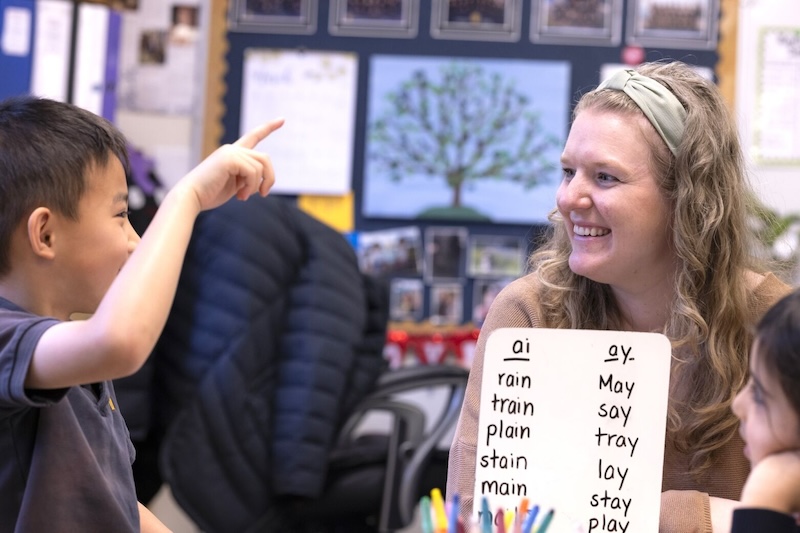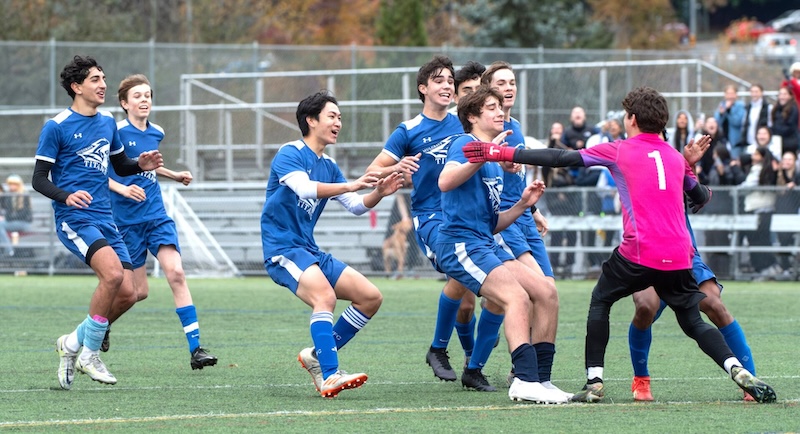Education for greater good
Posted on 5th Nov 2024 in School News, International Education, International Schools, Wellbeing
Craig Davis, Head of Mulgrave School - The International School of Vancouver, Canada, on achievement vs attainment cultures and the impact on student wellbeing and progress.
Education has a long history of markers of success - grades, awards for top achievements, honour rolls, university acceptances, scholarships, and more. But there has been a tangible shift at schools around the world to examine our purpose. Do we exist to create ‘the best’ or instead, to connect personalised learning to progress, to self-esteem and confidence, to empathy and compassion, and finally to creating greater good?
We often refer to the term ‘personal best’ at Mulgrave. It’s become informally a part of our mission statement as is our definition of excellence. We’ve long been proud of our approach to a broad, holistic, and personalised approach to education, with exceptional care and support for each student. We continue to focus on differentiation in our teaching, executive function and other core skills, and the more sophisticated use of baseline data to inform our practices. We also look to enhance student agency and choice within the curriculum through a wide range of extra-curriculars, courses, and hands-on experiences. Additionally, personalised support for students has meant an increased focus on social-emotional and post-secondary counselling, learning support, and the care provided by advisors, classroom teachers, and divisional leaders.
As we reflect and truly examine the meaning of personal best, what has emerged is the notion of separating ‘progress’ from ‘attainment’ and framing the relentless pursuit of progress more clearly in the minds of students, teachers, and families. This also influences our understanding of excellence, because the emphasis on progress, as opposed to attainment, better reflects our commitment to our mission of ‘inspiring excellence in education and life’.
This shift requires us to develop a much deeper, richer, and wider understanding of human achievement beyond the prize, the destination, or the reward. Research around intrinsic motivation and mental health points to the danger of focussing on narrow markers of external success alone. Jennifer Breheny Wallace rings this warning bell in the influential text Never Enough: When Achievement Culture Becomes Toxic - a book many of our families read for one of our recent school Book Club meetings.
However, this consideration is not simply about protecting the wellbeing of our young people, it is also about best practice in education, sports, arts, and the science of human behaviour. If we only have an eye on the prize, the university name, or just the academic mark then ironically, the capacity for an individual to achieve lifelong success and satisfaction is undermined. A great illustration comes from Canadian superstar Donovan Bailey, who presented to educators at a recent conference in Canada. He espoused that highly effective coaching begins with meeting students exactly where they are and cultivating the lifelong habits of valuing gradual improvements, shielded from external drivers. So whether a Grade 8 student’s personal best is 17 seconds for the 100 metres or another’s PB is 12 seconds, in both situations the coach and student work on progressing that time, incrementally, step by step.

Crucially, it is focus on the mechanics of progress, not the external prize or award, that ensures effective development and even more importantly, authentic investment from the student who is more likely to sustain that self-motivation. This avoids the ‘never enough’ toxicity that Breheny Wallace outlines in her book that emerges when external expectations or attainment prizes become the drivers rather than personal progress. This is also a key definition of inclusivity in education as we seek to improve all students from their own personalised baseline data points so that value can be added and tracked differently for every individual.
It is important to state that our expectations remain high using this coaching analogy; prizes, gold medals, top scores, and university places will inevitably emerge as outcomes of focussing on progress. The difference in this model is that whilst an IB grade of 7 or Ivy League university target may well be an appropriate outcome for some students, the emphasis on personalised progress means that for others, a grade of 4 and a gap year following school will also represent an excellent result and success criteria.
A learner can move through a hierarchy of needs (akin to Maslow’s) that blossoms from safety to belonging to self-esteem and finally self-actualisation. We must remember that mental health, wellbeing, learning, and inclusivity are overlapping and interacting domains. Importantly, when every student knows they are consistently making progress, self-esteem also flourishes because the measure of ‘best’ is no longer tied to a prize or recognition of being ‘top’. And with that, they begin to help others. The progress made in mathematics…or music or sports or reading…can be as important as community service in helping an individual become more compassionate and aware. Knowing that we are improving and developing is key, regardless of where this occurs, so focussing on progress is crucial in helping our young people to flourish as good human beings. And in turn, they will do good in the world
This article first appeared in the 2024/25 edition of John Catt's Guide to International Schools, which you can read here: